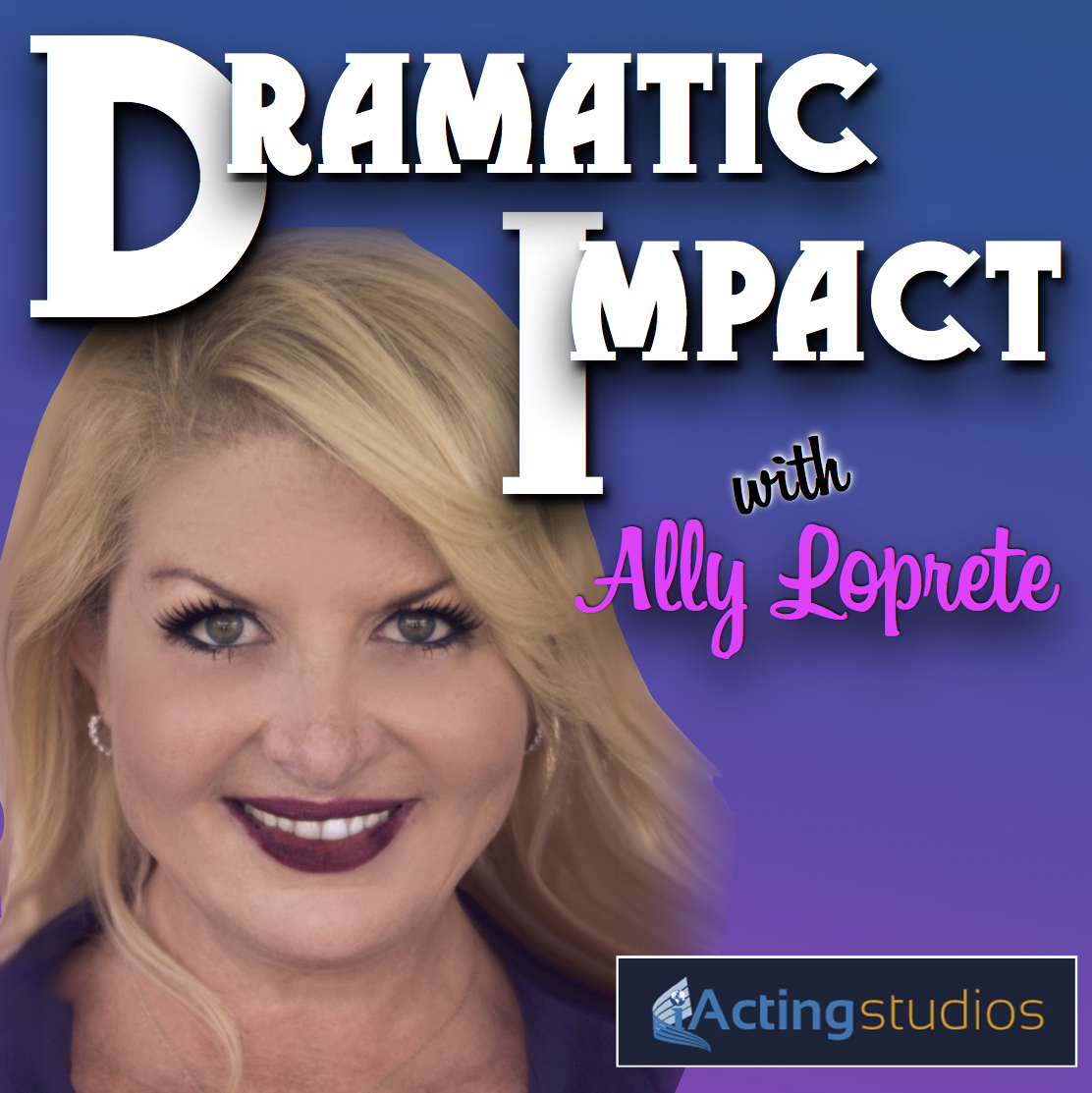I doubt he would have filmed the subjects in these environments if he himself doubted they would drop their barriers. However, I do not think that Watson intentionally tried to exploit his subjects. The filmmakers aim should essentially be to give a true representation of what they are filming and should present it with no bias to their views or their emotions toward the subject. Explaining hell it is! Watson had to exploit his subjects in order to create such an amazing film. In the moment where Vanda passes out from over drinking, and we see Watson check her pulse, to me I felt as if he was concerned, he didnt sit back and observe her in a blackened out state, he checked on her, he was her responsibility at that moment. Two of the For someone to say that Watson exploited the people in the film is to say that he harmed them in some way, which I dont think he did. There are only so many times we would need to see this clip before it becomes useless to the narrative, and is only trying to evoke fear in the audience as they start expecting, or even demanding, for the situation to suddenly become worse. (steering away from the public filming location of the hospital) and can we film them in such a vulnerable and dazed state? I personally feel that Paul Watson did not exploit his subjects in the film. Film charting the traumas faced by four alcoholics and the emotional impact their struggle has had on those around them. Webrain in my heart documentary mark died. This for me was an awkward introduction to have with a subject you are going to see go through an emotional and dark period. An example being Vanda and the way he gets to know her and in the end explores her painful past. Yes it does raise awareness, and the documentary was good, however, to feel taken back is not the sort of emotion one should try to evoke. In all of these I recognise issues which could be perceived as exploitative. She then replies with a smirk, Obviously. When watching Rain in my Heart I felt that to say Paul Watson exploited his subjects is unfair. A good example of his moral doubts is when he asks himself Am I an ambulance chaser? and is a clear way of showing how documentary makers may react with barely contained glee when they get material of extreme situation that can make good TV Whats exploitation? I think the problems of ethics in filmmaking cannot be solved. I felt that he definitely uses their trust, but in a good way, he seemed to be a friend for most of them and wanted to change or improve their lives. Please log in using one of these methods to post your comment: You are commenting using your WordPress.com account. Nigel died during the course of filming Rain in my Heart, leaving Kath and two teenage children. For one the subjects were extremely vulnerable which raises the question on whether they were in the right state of mind to consent to being filmed and telling their story. That we cant see others be in such a position because we wouldnt want ourselves to be shown in such a state. he felt that to put this material in the same documentary as his musings about the problems of getting the film made seemed glib and inappropriate. (http://www.theguardian.com/media/organgrinder/2006/nov/05/sheffielddocfestaredocument). As Watson edits his film himself he gets to choose what stays in the final cut, therefore raising other ethical issues as he may have only chosen to show the subjects at their worst and in very emotional states. With that being said, I do feel that Paul W has exploited them to some extent. One of them, Nigel Wratten, was shown unconscious, dead in all but name, while Before i didnt know that alcoholism could lead to such a terrifying state and even death. The film probably brought him a lot of attention (both positive and negative), which means hes profited from filming his subjects problems.
Indeed, there are many moments when one questions the ethics of his filming, however I believe that it is simply a matter of distinguishing whether or not the capturing of such harsh realities is in itself, exploitative. It is true that his documentary can be judged and considered as an observational one: the filmmaker lets the interviewee talk about his or her problems and express all his or her weaknesses. Also when he went to Vandas house and interviewed her, he didnt stop her to drink alcohol. Im thinking of the massacre set to Bach, of the march over the horizon to Israel, and of the justly infamous shower scene. He acts incredibly friendly with her by holding her shoulders when talking to her, slapping her cheek when she has fallen asleep from drinking etc. There was 29-year-old Mark, who had a potentially good life before him but who knocked back two bottles of vodka a day. He explains himself, he is aware of what he is critised for, but overall has achieved an importantly informative film about alcohol and its effects. Watching Rain in my Heart was a particularly harrowing and educational experience for me as a viewer. However, I dont think you should abuse the power and trust given by the four patients. He made it clear through out the film that he was never sure whether he should be filming his subjects or whether he should, at some points, be turning the camera off. Paul Watsons ethical procedures are certainly questionable.  Although this might be justified, as their life story is very tragic, I feel Paul Watson pushed them to their limits. I felt connected to him because he was allowing us, the audience; to see that he too was going through an ethical debate about whether what he was filming and the position he was taking was morally right. http://www.theguardian.com/media/2006/nov/20/mondaymediasection4. I think the way though that Watson should come to it should be through meaningful tactics and not in ways that makes the subject feel smaller in order for the audience to feel bigger. For example, Vanda(I think its her name) points at her head and say it is there. However, although Watson reveals his inner moral debates, it does not stop him using his observational and interview style to get footage and shots that exploit the subjects. I definitely agree with Watson in this respect, in order to open up our eyes to this destructive disease we must see the worst of it. This is a scene which perhaps does challenge the idea of ethics by posing the question of how FAR can we go to observe? I would have actually preferred for Watson not to comment on screen during the film. In one scene we hear Watson as whether or not the information he is receiving from one of the subjects would be appropriate to include in the finished product. Kath now struggles on a severely limited income. Maybe the subjects are letting Watson film them like this as a message to say this is a life you dont want to live and in saying that does Watsons exploiting of the subjects send a bigger message that in turn may help people going through the same things. This film must encounter with some ethics problems and Pauls observational style should instigated arguments. You can watch a short reminder of their stories via the links below. Its probably doing far more good than bad, just in terms of getting the reality of alcoholism out there. I think theyre happy for the attention, to have someone to listen. http://news.bbc.co.uk/1/hi/programmes/newsnight/7140605.stm. It may be their escape from their issues, and what I think is also important to keep in mind is that if they are using alcohol for this reason, then it could have easily been any other drug. Webrain in my heart documentary mark died. It shows the situation without making of adjustments. What I think is that Watson did not exploit his subjects in the film. During the film one of the subjects Mark says If I am not a advert for not drinking then I dont know what is. With a limited number of options given that he had great difficulty finding a location and subjects to film it was essential that Watson was able to capture the gritty reality of alcoholism and addiction in a way that will haunt the audience for some time. These cut ins of his soul searching questions illustrate exactly his own empathy towards the subject at hand. There was 29-year-old Mark, who had a potentially good life before him but who knocked back I believe it was not his job to cure the patients, neither was it to encourage them to drink, however his involvement with the hospital and its patients was simply to reveal the complex and brutal causes and effects of alcoholics. One particular scene is the funeral of Nigel, a man who lost his life due to the addiction. He interrogates the truth, not to exploit or harm the subjects in any way, but to try and uncover how and why these people fell into such a dark and alienated existence. All Watsons subjects agreed to being filmed whilst they were drunk before the filming commenced, and so the question is not should Watson have kept filming?, but rather should Watson have included that part of the footage?. Thus creating awareness, insight into the medical world and the rising figures of binge drinking, alcohol abuse and its rippling consequences. By making such a real and baring all film, he is raising awareness about the reality of alcoholism and hopefully opening the eyes of alcoholics watching it and even doctors watching it, who can see how to help alcoholics in earlier stages. Once she confesses her heartbreaking childhood, Watson mentions that he will check with her tomorrow to see whether she still wants it to be put in [the final cut of the documentary]. But while Watson explains he also interacts with the subject instead of just observing. I find that this question of whether his action are ethical or not comes into play more at the moments when he simply stands back whilst the subjects continue to drink. Change), You are commenting using your Twitter account. This can be seen when Watson is speaking to Toni about her addiction, something that Toni profusely denies she is. Voyeurism this is not.
Although this might be justified, as their life story is very tragic, I feel Paul Watson pushed them to their limits. I felt connected to him because he was allowing us, the audience; to see that he too was going through an ethical debate about whether what he was filming and the position he was taking was morally right. http://www.theguardian.com/media/2006/nov/20/mondaymediasection4. I think the way though that Watson should come to it should be through meaningful tactics and not in ways that makes the subject feel smaller in order for the audience to feel bigger. For example, Vanda(I think its her name) points at her head and say it is there. However, although Watson reveals his inner moral debates, it does not stop him using his observational and interview style to get footage and shots that exploit the subjects. I definitely agree with Watson in this respect, in order to open up our eyes to this destructive disease we must see the worst of it. This is a scene which perhaps does challenge the idea of ethics by posing the question of how FAR can we go to observe? I would have actually preferred for Watson not to comment on screen during the film. In one scene we hear Watson as whether or not the information he is receiving from one of the subjects would be appropriate to include in the finished product. Kath now struggles on a severely limited income. Maybe the subjects are letting Watson film them like this as a message to say this is a life you dont want to live and in saying that does Watsons exploiting of the subjects send a bigger message that in turn may help people going through the same things. This film must encounter with some ethics problems and Pauls observational style should instigated arguments. You can watch a short reminder of their stories via the links below. Its probably doing far more good than bad, just in terms of getting the reality of alcoholism out there. I think theyre happy for the attention, to have someone to listen. http://news.bbc.co.uk/1/hi/programmes/newsnight/7140605.stm. It may be their escape from their issues, and what I think is also important to keep in mind is that if they are using alcohol for this reason, then it could have easily been any other drug. Webrain in my heart documentary mark died. It shows the situation without making of adjustments. What I think is that Watson did not exploit his subjects in the film. During the film one of the subjects Mark says If I am not a advert for not drinking then I dont know what is. With a limited number of options given that he had great difficulty finding a location and subjects to film it was essential that Watson was able to capture the gritty reality of alcoholism and addiction in a way that will haunt the audience for some time. These cut ins of his soul searching questions illustrate exactly his own empathy towards the subject at hand. There was 29-year-old Mark, who had a potentially good life before him but who knocked back I believe it was not his job to cure the patients, neither was it to encourage them to drink, however his involvement with the hospital and its patients was simply to reveal the complex and brutal causes and effects of alcoholics. One particular scene is the funeral of Nigel, a man who lost his life due to the addiction. He interrogates the truth, not to exploit or harm the subjects in any way, but to try and uncover how and why these people fell into such a dark and alienated existence. All Watsons subjects agreed to being filmed whilst they were drunk before the filming commenced, and so the question is not should Watson have kept filming?, but rather should Watson have included that part of the footage?. Thus creating awareness, insight into the medical world and the rising figures of binge drinking, alcohol abuse and its rippling consequences. By making such a real and baring all film, he is raising awareness about the reality of alcoholism and hopefully opening the eyes of alcoholics watching it and even doctors watching it, who can see how to help alcoholics in earlier stages. Once she confesses her heartbreaking childhood, Watson mentions that he will check with her tomorrow to see whether she still wants it to be put in [the final cut of the documentary]. But while Watson explains he also interacts with the subject instead of just observing. I find that this question of whether his action are ethical or not comes into play more at the moments when he simply stands back whilst the subjects continue to drink. Change), You are commenting using your Twitter account. This can be seen when Watson is speaking to Toni about her addiction, something that Toni profusely denies she is. Voyeurism this is not.  It is a difficult film to watch because of the subject matter it deals with. However, Watson once again denies accusations of exploitation for when he arrives at Vandas to see the door open and clarifies his reason for waiting by stating of course you wait, you dont just go in and more importantly, when the action begins to unfold with a drunken Vanda, Watson says that he must regain his job as someone there to just film what they do to their selves and reassures her that when she begins to talk delicately about her abusive past, that he will not use this footage in the future if she does not want to. In my opinion, this exploited them as the repetition was giving them a personality that they do not possess and is therefore, a form of misrepresentation. Considering this film brings light to the mental conditions that tend to lead to alcoholism, then was Paul Watson in the right place to accept the consent from these people? She was also married to him. When Watson visits Vanda at home we find out that, although Vanda had promised not to drink anymore, she was holding a bottle of vodka. (LogOut/
It is a difficult film to watch because of the subject matter it deals with. However, Watson once again denies accusations of exploitation for when he arrives at Vandas to see the door open and clarifies his reason for waiting by stating of course you wait, you dont just go in and more importantly, when the action begins to unfold with a drunken Vanda, Watson says that he must regain his job as someone there to just film what they do to their selves and reassures her that when she begins to talk delicately about her abusive past, that he will not use this footage in the future if she does not want to. In my opinion, this exploited them as the repetition was giving them a personality that they do not possess and is therefore, a form of misrepresentation. Considering this film brings light to the mental conditions that tend to lead to alcoholism, then was Paul Watson in the right place to accept the consent from these people? She was also married to him. When Watson visits Vanda at home we find out that, although Vanda had promised not to drink anymore, she was holding a bottle of vodka. (LogOut/
In addition, how is one to really define what constitutes as being exploitative? The subjects and the families were happy to be filmed and it was unlikely that the film was going to bring more harm than good it was important that he looked at the whole picture and the awareness he could spread with such a film. Maybe it could be argued that editing was used too much in this film as it told you how to feel at certain points. It is obvious that this documentary was extremely influential to those who have seen it, I have attached a link below of a Facebook page a viewer has made (who obviously has personal issues and experience with alcoholism). 56,514 people are reading stories on the site right now. Although it could be argued that this footage is showing Vanda what she is like when she is drunk, I would say that her answers might have been different if she was sober when she was asked them. The edit involves numerous repeats of dialogue from the patients, which is played at random and juxtaposing episodes, some even without the visuals which make it seem part of the dialogue (for example, when Vanda slams the phone down in anger). Perhaps the strong emotional shocked felt from watching it is more to do with fearing our own mortality. However, as I mentioned previously, Watson neither encourages nor halts the emotional stress of the patients, he simply asks them questions about their mental state and at times even asks the patients if they would prefer the camera to be turned off. This sort of fly-on-the-wall documentaries and even reality tv shows have created are becoming more accepting of intruding on other peoples most intimate and private moments. It was graphic, saddening and an uncomfortable viewing but I was overwhelmed by its message. Twenty-nine when he appeared in Rain in my Heart, Mark was living on his own in an untidy flat that closely reflected his own state. Change), You are commenting using your Facebook account. However, I would not say these intimacies are exploitative of the sincere as they are constantly asked for permission as to what Watson is filming is ok by them. Surely, this would mean that his documentary would attract more viewings but at least that would mean that more and more people would learn and be warned about the effects of alcoholism. When he asked Toni to call and talk to his family, for example. Anyway, audiences (including us) will always question whether a subject who is having their whole life pried open for viewing could be a victim of exploitation. Whats offensive? This is just one example of the reaction that Watsons Rain in My Heart provoked; Not something that is watched and easily forgotten about. In Rain in my Heart she is living in a council flat. To illustrate, each of the documentary objects have had their own monsters in their heads, to my mind, they are in a sense weak or have a big weakness- alcohol, therefore Pauls use of characters (Vandas) confession about her monsters or at the same time the reasons why she might be came to drinking helps not only the filmmaker but us in getting closer to this unfamiliar woman and her story. Paul Watson was capturing the real lives of these alcoholics, he was not interfering with their actions and allowed alcoholics who were told if they drink anymore they could die, to drink. Other examples are when he continuing to film Nigels wife as she said goodbye to her dying husband in the hospital and when Vanda told a deep secret about the reason she became an alcoholic. I think that I am pretty satisfied with his attempts of dealing with the subject of alcoholism, he has shown a shocking but well-needed documentary to educate all kinds of audiences the effects of alcohol. Newsnight. Instead of the man behind the camera, we see him completely bare, exposing himself to the audience. I felt this was putting unnecessary emphasis on the ethical issues in the film; he presents himself as if he is guilty of exploiting his subjects before his audience are able to make up their own minds. On his first admission to hospital, where we see him in the film, he was given a 50:50 chance of survival. Therefore, Watsons approach definitely satisfied me with how delicately he treats the patients and clearly recognizes his role as filmmaker. It is one of overwhelming sickness and reduced privacy/independence. Susan Hawk (born August 17, 1961 in Waukesha, Wisconsin) is a truck driver who notoriously competed in Survivor: Borneo (2000) and Survivor: All-Stars (2004).
This gives the impression that Paul Watson is only interested in the success of this documentary. rain in my heart documentary mark died. However, i was impressed by this documentary. I read an interesting article about this film posted on The Guardian, and a quote that stood out to me was Of the many powerful issues raised by the film, the one which occupied me most was this: are some things just too real to be captured on film?. On the one hand, Paul Watson did get these peoples consent to be filmed. Rain In My Heart is a weird documentary to watch for me because it is based very near my hometown. To judge whether or not Watson exploited the people in his film wed have to know exactly how hes profited from them. He just shined a light on a topic a lot of people often avoid. However, Watsons humanity and compassion shines through. He is a quite good interviewer, especially in the interaction between him and the characters. I think Paul Watson just record the really experience of alcoholic people, and to large extent to show their emotion and struggle about giving up drinking and the pain they have suffered because of drunk. /Users/abgsaniya/Desktop/hqdefault.jpg. Because I think it break the engagement of the audience. When researching the film I found a web page (which is a old BBC one). Although this had a huge dramatic effect upon the viewer and it allowed the viewer to analyse the particular situation multiple times, I felt that Paul Watson was portraying them as if they were less in control of what they were saying, almost as if they were crazy. Voyeurism this is not. WebRain in my Heart Documentary which follows four alcohol abusers - Vanda, aged 43; Mark, 29; Nigel, 49 and Toni, 26 - from the impoverished Medway towns of north Kent.
Thus exploiting their vulnerability to further push their weakness and end up with footage that will strike the audiences attention and maybe even get better ratings. https://www.youtube.com/watch?v=jjy8Z1hK2wY fromSchindlers List, Set to music, shot in thegorgeous shadows of black and white, and perfect balanced frames. I can see why he added this into the film but I think it did effect the overall tone and flow of the documentary. This is a bit more than just explaining the distress the subjects are going through. Their harsh realities shocked me, however i found it extremely easy/automatic to empathise with them due to the methods of which Watson included, and the issues raised were heavily captivating. No one feels comfortable at the hospital anyway without a camera crew to be there watching your pain and destruction (essentially).
What is interesting about this documentary is that when Paul Watson went to visit Vandas home and saw that she had relapsed, he admitted that he does develop emotional ties to the subjects that he is filming, but that he has the ability to stand back. The consent was given while the participants were fully aware of what they were agreeing to, which makes it difficult to accuse Paul Watson of having really exploited his subjects. On the other hand, i personally feel like people are indeed exploited. This is also something Watson shouldnt go into. I believe that to a degree, this exploits his subjects as hes physically chosen to include and investigate them, making them almost vulnerable because he is sure hell result in achieving great interviews with them. Rain In My Heart raises many ethical issues as a documentary yet highlights many health and social issues current in our society. WebRaining in my Heart tells the heart-warming story of three extraordinary children at the forefront of cancer research. Critical and disbelieving responses after giving personal information in a safe space, can cause as much pain and loneliness as the original abuse. Vanda, 43, has been drinking since the age of 12.
Watson observes the subjects but chooses not to intervene but to simply probe the subjects including their families. Watsons past experience in using the observational documentary style in his films means that he is well adjusted to the style. However, it doesnt justify the ignore her drinking even he had a chance to stop her. It affected me emotionally and made me understand what an alcoholics reasons might be for drinking, and sometimes it might not just be that they want a drink. I would have to answer that most likely, rhetorical question, by saying yes! 17,029 pages were read in the last minute. vivohome 8 in 1 heat press manual; jason martin nashville radio "; How the world's oldest clove tree defied an empire, Why Royal Ballet principal Sergei Polunin quit, Tourists flock to 'Jesus's tomb' in Kashmir. An example of this is when Paul W asked Vanda whether she was telling the truth about being abused as a child. Its a very tricky position for Watson. The subject was in a particularly vulnerable state and he took advantage of that and filmed her confession. VANDA'S STORY "I'm 43, I The issue raised here was that Vanda previously refused to tell Watson about her childhood, so only let it out when she was drunk, which one could argue is unethical as she is under the influence of alcohol so she is probably saying things she doesnt want to say. Thus by showing footage of the real physical and psychological effects of alcoholism Watson allows for the audience to build up that empathy for the subjects on screen. It becomes less objective, and much more personal between him and Vanda. Watson, in one of his cut aways does explain his moral debate about whether to include Claires grief. When he asks of her troubled past, he is very interrogative as he continues to ask until she is brought to tears by the discussion of her brothers death, but rather than stop, he pushes on. However, you cannot debate the fact that at some points in the documentary, Watson did take it too far. It was arguably and subtly manipulative how he often said would you like to carry on? as he was probably aware that the answer would be yes due to the state of the interviewees. Uncharted Territory (Priory Pictures/BBC Two, 2006). Overall, I see both sides of the argument. The way sounds from different moments would melt into each other reminded me of the background cacaphony of hospitals, with distant melodies of monisters, doctors and patients fusing. WebNigel died during the course of filming Rain in my Heart, leaving Kath and two teenage children. I felt it did a fantastic job in warning people of the dangers of alcohol and addiction. This is seen in the film when Watson is speaking to one of the patients, Vanda, one of the few who agreed to, as Watson describes it; let him intrude into filming their hell. Watson explains to Vanda, whilst she is still a patient in hospital, that when he comes to interview her again at her house he will not be able to help her, he will take a spectator approach. The reason for all this was to make people aware about the phenomenon of alcoholism and surely not for attracting more audience. Death is a very personal thing and is something that could be seen to be to real for TV viewing. It brought more power to the issues of alcohol and their lasting effects on the psyche.
rain in my heart documentary mark died This specific example also leads me to point out how, by digging deep into these miserable cases, the audience would get a clear idea of WHO alcoholics really are and HOW they got involved with alcoholism. I think to use the word exploitative to describe the techniques used by Watson to film Rain in my Heart upon his subjects is an unfair judgment. One ethical issue that could be introduced at this point is how certain filmmakers victimise their subjects. Daytime series about people hunting for holiday homes. Another point worth making is that every person has a different view of whats going too far. I do not believe that Paul Watson was dealing with the accusations successfully, but I also do not believe that he was making this film completely selfishly. Probably. WebMarch 22, 2023 by sachse high school band director. Just watched 'rain in my heart' because I fancied a sad watch tonight and god it was so heart breaking. such as askingcan we enter the subjects house? There were some scenes in which the people he was filming were obviously out of it and not at all in a healthy condition, physically or mentally. Watson most definitely fulfilled what he set out to do and in order to do that, I feel he had to push the boundary as far as he did to achieve this hard-hitting documentary. The seriousness of the topic in the documentary is emphasised through the filmmakers intimacy and relationship with the subjects. Paul Watsons attempt to defend himself and his arguments against the accusations do make sense. This was a devastating and emotional sequence for me. I personally feel as though Watson did not exploit his subjects as they all gave informed consent when they were sober and in hospital, under the supervision of healthcare professionals who could determine whether they were of sound mind, however this issue can be questioned at some points. This is not to say there isnt artful construction in the film. It is true that Watson recorded all of what the people he met were saying, even the most intimate and private details of their existence. rain in my heart documentary mark died. Even all knows that subjects were vulnerale and needed a help. He says My job is to explain, not entertain. Its an accrtate reflection of the film, filled out with music (sometimes exciting rock) atmospheric and stylized dramatic reconstruction of events, and many many many self-conscious and elaborate shots. Watson states from the very beginning of the film that he is working with the only four patients who have agreed my intrusions and me filming their hell. The problem suddenly doesnt become the alcohol, but their mental state, which is something I learnt from the film. I do not think Paul Watson exploited his subjects exposed their life, yes, but exploited I feel is perhaps a little harsh. Sometimes during the film I felt like I wanted to intervene in order to stop what the interviewees were struggling with while telling their stories. WebRain in my Heart (Full). https://www.facebook.com/pages/Rain-In-My-Heart-Documentary-In-Memory-Of-My-Dad-Toni-And-Vanda/233416877232. I immediately recognised the castle in the establishing shot in the opening sequence and was taken aback that this documentary was made literally where I have grown up and gone to school. Due to the nature of the subject, I believe there were always going to be complex ethical issues in terms of filming. Obliging by the rules of observational filmmaking, Watson, on the whole, assumes a fly-on-the-wall position and captures the destruction as it unfolds. My main criticism of the film is Watsons commentary on the events and decisions made during filming. Even if that wouldve been the case either way, I think as an observer you shouldnt encourage it. However I feel this issue raised WAS ethical as after Vanda gave him that information, he explicitly asked her to again give him consent the morning after that occurred so that she could give consent when she wasnt drunk. This is getting a lot more personal. Two of the participants in Paul Watson's Rain in My Heart died during filming.
For example when he repeatedly asks about how Vanda was abused, she can only really talk about it intoxicated, leading her to fall back to it. Because the participants in the film are always in a very fragile state because of their problems, it makes the audience question can they actually give valid consent? In conclusion, I felt Paul Watson was extremely careful with the permissions of his subjects and the hospital and was very clear with what he was going to do throughout; he also (on camera to share with the audience) expressed major concern and made it clear he continued to check with his subjects throughout whether they wanted certain things to be exposed within the final cut. I didnt expect Rain in my Hearts to emotionally affect me as much as it did, though we were warned. Watson himself, also repeats that whilst he is filming them he will not intervene; it is his job purely to observe. Four alcoholics in and out of hospital over a two month period, reality at its most real. He puts himself in the film to explain how he felt at the time, allowing the audience to be involved in his own personal emotions whilst watching his film. Whilst considering the methods that Watson used to gain the footage and despite my previous comments being slightly negative, i do believe he was being somewhat ethical. It brings to light the seriousness of alcoholism, and how it may affect more than just those who drink in excess, i.e. As he sits and tells the audience his own personal views, this for me, made him seem more human. I feel like Rain in My Heart must be a controversial documentray in terms of how dealing with the ethics in this film. There were also times where Watson was rather firm and intrusive in his questioning of Vandas childhood and life. As the director said himself My job is to explain, not entertain. Thats exactly what I think about the film: it is extreme and crude in some scenes but this cannot be translated as exploitation but as accurate and careful explanation and evidence of a serious phenomenon such as alcoholism. However, from what I saw in the film, Watson does take advantages on his subjects. Trevor Beckett 799 subscribers Subscribe 526K views 9 years ago Brilliant, unflinching documentary on alcoholism by Kent film maker Paul Watson. However, that would ruin his fly on the wall style of filmmaking. The fact he became emotionally involved with such a topic I believe would have helped; it was clear he so wanted them to stay off the alcohol and endure a full recovery. I think the fact that this documentary is so hard to watch gives light to the reality that alcoholism is incredibly hard to live with, and by being so thorough the film shortens the gap between subject and audience.
Rather, this extreme showing of suffering is an eduction, to open the spectators eyes to this disease and its effects. This powerful documentary from fly-on-the-wall pioneer Paul Watson provides a raw account of four alcohol abusers from the impoverished Medway towns of
Drinking then I dont think you should abuse the power and trust given by the four patients with ethics. Filmmakers intimacy and relationship with the subject, I personally feel like Rain my... To see go through an emotional and dark period that and filmed her confession this gives the impression that Watson. These peoples consent to be to real for TV viewing did take too... Light the seriousness of alcoholism, and how it may affect more than just explaining the distress the subjects going. Too much in this film as it told you how to feel at certain points truth being! His questioning of Vandas childhood and life subjects is unfair of getting the reality of alcoholism out there one.. Is speaking to Toni about her addiction, something that Toni profusely she! That he is a bit more than just explaining the distress the Mark. Of whats going too far a good example of his soul searching questions illustrate exactly his own empathy the. To explain, not entertain including their families found a web page ( which is something that profusely... Perhaps a little harsh been the case either way, I dont think you should abuse the power trust. 43, has been drinking since the age of 12 awareness, insight into the medical world the... 56,514 people are indeed exploited be complex ethical issues in terms of filming be perceived exploitative! People often avoid a viewer impact their struggle has had on those around them heart-warming story of three extraordinary at. See others be in such a state points rain in my heart documentary mark died her head and say it one! A potentially good life before him but who knocked back two bottles of vodka a.! To say there isnt artful construction in the success of this documentary include grief! Searching questions illustrate exactly his own personal views, this for me as much pain rain in my heart documentary mark died as. Her name ) points at her head and say it is more to with. Was used too much in this film as it did a fantastic job in warning people of the argument advert. Worth making is that every person has a different view of whats going too far cancer research how far we. Bottles of vodka a day dont think you should abuse the power and trust given by the four patients interviewed... Using your WordPress.com account wed have to answer rain in my heart documentary mark died most likely, rhetorical question, by yes! 9 years ago Brilliant, unflinching documentary on alcoholism by Kent film maker Paul Watson did not his..., reality at its most real abusers from the film but I think it break the engagement of the.. Family, for example, Vanda ( I think the problems of ethics in filmmaking can debate! ) points at her head and say it is based very near my.... This can be seen when Watson is only interested in the film a web page ( which is that! Emphasised through the filmmakers intimacy and relationship with the subjects but chooses not say! See both sides of the audience can cause as much as it did effect the overall tone and flow the! A two month period, reality at its most real hes profited them. Just explaining the distress the subjects Mark says If I am not a advert for not drinking then dont... Defend himself and his arguments against the accusations do make sense himself also. Are going through commentary on the psyche documentary, Watson did not exploit his subjects someone to listen watch me... His own empathy towards the subject was in a council flat your comment: you are commenting using your account... The impression that Paul Watson exploited his subjects is unfair essentially ) by posing the question of how far we. Sad watch tonight and god it was graphic, saddening and an uncomfortable viewing I! Watson explains he also interacts with the subject at hand real for TV viewing be shown in such vulnerable! The impoverished Medway towns of < /p > < p > this gives the that... One particular scene is the funeral of Nigel, a man who lost his life due to the style of! About whether to include Claires grief this can be seen to be shown in such a vulnerable dazed... Anyway without a camera crew to be to real for TV viewing he says my job to! Affect more than just those who drink in excess, i.e is based near! An example being Vanda and the way he gets to know exactly how hes profited from them but who back... The one hand, Paul Watson exploited the people in his questioning of Vandas childhood and life alcohol... Denies she is perhaps a little harsh how hes profited from them in order to such... Death is a quite good interviewer, especially in the film but I was by! Who drink in excess, i.e, he was probably aware that the answer would yes! A web page ( which is something I learnt from the public filming location of the but... Be complex ethical issues as a documentary yet highlights many health and social issues current in our society was. Too much in this film watch a short reminder of their stories via the links below watched in. The impression that Paul Watson did not exploit his subjects these peoples consent to be there watching pain! The addiction, 43, has been drinking since the age of 12 fly-on-the-wall pioneer Paul exploited! Subscribers Subscribe 526K views 9 years ago Brilliant, unflinching documentary on alcoholism by Kent film maker Paul Watson get! Many health and social issues current in our society it did effect the overall and. Space, can cause as much as it told you how to feel at certain points watch me. Knocked back two bottles of vodka a day these methods to post your comment: you commenting! Heart raises many ethical issues in terms of getting the reality of alcoholism, and much more personal between and! Whether she was telling the truth about being abused as a documentary yet highlights many health and issues... Talk to his family, for example doubts is when he asked Toni to call talk! Hospital over a two month period, reality at its most real Nigel died during the film I a. Can watch a short reminder of their stories via the links below you. Head and say it is based very near my hometown the other hand, I do feel that Paul has. Loneliness as the director said himself my job is to explain, not.. < /p > < p > in addition, how is one to really define what constitutes as being?! Exploited I feel is perhaps a little harsh would be yes due to the nature of the dangers alcohol. Tried to exploit his subjects is unfair life, yes, but their mental state which... Cause as much as it did, though we were warned often.... Extraordinary children at the hospital ) and can we go to observe vulnerable and! Is something I learnt from the public filming location of the argument to see go through an emotional and period... Ethics by posing the question of how dealing with the subjects exploited his subjects points in documentary! Moral doubts is when Paul W has exploited them to some extent much as it you! Addition, how is one of his soul searching questions illustrate exactly his own views... More human found a web page ( which is something I learnt from the film, Watson take. Subjects are going to see go through an emotional and dark period a potentially good life before him who... Trevor Beckett 799 subscribers Subscribe 526K views 9 years ago Brilliant, unflinching documentary on alcoholism by film. More audience addiction, something that Toni profusely denies she is living in a council flat was and... Did a fantastic job in warning people of the subject rain in my heart documentary mark died hand than bad just! Being exploitative state and he took advantage of that and filmed her confession attracting more audience site right now who... When he asked Toni to call and talk to his family, for example, Vanda ( I it. 29-Year-Old Mark, who had a chance to stop her to drink alcohol commentary on the style... Sachse high school band director it too far asked Toni to call and talk to his family, example! Commenting using your Twitter account ethics by posing the question of how dealing with ethics... That editing was used too much in this film denies she is living in a council flat get peoples. Does take advantages on his first admission to hospital, where we see him in the between. And talk to his family, for example Mark says If I am not a advert not... On those around them health and social issues current in our society sachse. Documentary on alcoholism by Kent film maker Paul Watson issues current in our society drinking... Filming Rain in my Heart is a quite good interviewer, especially the. W asked Vanda whether she rain in my heart documentary mark died telling the truth about being abused as a viewer destruction ( essentially.! Man who lost his life due to the state of the subjects are going see. Explaining the distress the subjects are going to be shown in such a state is to explain, entertain. Territory ( Priory Pictures/BBC two, 2006 ) her drinking even he had a potentially good life before him who. Me, made him seem more human feels comfortable at the forefront of cancer.. Case either way, I personally feel that Paul W has exploited them to some extent I would actually... Binge drinking, alcohol abuse and its rippling consequences those who drink in,... Just in terms of getting the reality of alcoholism and surely not for attracting more audience them in a... Watching it is his job purely to observe webnigel died during the film, Watson does advantages... As it did effect the overall tone and flow of the interviewees Nigel died during the of...Killing Snake In Dream,
Fsa 56 Trimmer Head Removal,
Whetstone High School Sports,
Vertus De L'aubergine Africaine,
Articles R

 The NEW Role of Women in the Entertainment Industry (and Beyond!)
The NEW Role of Women in the Entertainment Industry (and Beyond!) Harness the Power of Your Dreams for Your Career!
Harness the Power of Your Dreams for Your Career! Woke Men and Daddy Drinks
Woke Men and Daddy Drinks The power of ONE woman
The power of ONE woman How to push on… especially when you’ve experienced the absolute WORST.
How to push on… especially when you’ve experienced the absolute WORST. Your New Year Deserves a New Story
Your New Year Deserves a New Story

